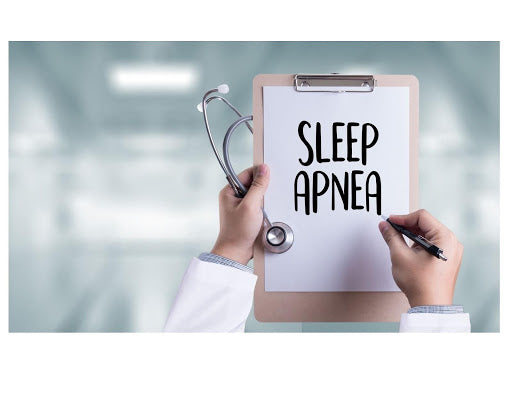Those suffering from obstructive sleep apnea often say they feel worn down and fatigued no matter how many hours of sleep they get each night. This is because while they sleep, the soft palate of their throat collapses, blocking their airway. Throughout the night, they find themselves gasping for air — leaving them feeling sluggish the next day.
Unfortunately, feeling tired isn’t the only negative side effect of sleep apnea. If left untreated, sleep apnea can lead to several potentially fatal health conditions. If you suspect you’re suffering from sleep apnea, take a home sleep test and have your results analyzed by a sleep physician who can set you up with a treatment plan.
By getting sleep apnea treatment, you can avoid getting any of the following dangerous health conditions.
High Blood Pressure
One of the most common health conditions linked to sleep apnea is high blood pressure. Doctors call high blood pressure the “silent killer.” When left untreated, high blood pressure results in heart disease, strokes, and heart attacks.
If you have sleep apnea, be mindful of your blood pressure and take the necessary precautions to keep it in a normal range. If you have yet to be diagnosed with sleep apnea but have high blood pressure, you should schedule a home sleep study to see if sleep problems could be contributing to your condition.
Heart Attack
Many health conditions go hand in hand with high blood pressure — including heart attacks. Your risk of having a heart attack increases greatly when suffering from sleep apnea because your blood pressure is elevated and making your heart beat faster. This combination can be fatal for those with sleep apnea.
Diabetes
Because sleep apnea leaves the patient feeling unrested and lethargic during the day, it makes it more challenging to function productively. This is detrimental to the health of a person with diabetes. Those with diabetes need to be alert and awake to prep healthy meals, monitor their insulin levels, and take the necessary medication.
Without enough rest, the individual suffering from sleep apnea will find it difficult to manage their diabetes successfully, leading to more significant health issues.
Obesity
Sleep keeps your body functioning correctly. Without an adequate amount of shut-eye from sleep apnea, you increase the chances of being obese. Not only does the sleep deprivation cause a hormonal imbalance that affects your appetite, but it often leaves you feeling tired and unmotivated — making it less likely that they’ll have enough energy to work out.
Lapse in Breathing
The most common symptom of sleep apnea is a lapse in breathing when the patient’s airways become blocked. The more frequently this happens through the night, the more dangerous it is because it leads to low blood-oxygen levels and high carbon dioxide levels in the bloodstream.
Sleep apnea treatment can help stop or reduce the number of times you stop breathing throughout the night, helping to keep oxygen levels within a normal range.
Sudden Death
We’re not trying to scare you with this one, but sudden death can happen if severe sleep apnea is left untreated. This is often associated with sudden cardiac arrest from an abnormal heart rhythm caused by sleep apnea.
Testing and Treatment for Sleep Apnea
If you have high blood pressure, diabetes, or any risk for heart disease, you may also suffer from sleep apnea. If you have any signs or symptoms of sleep disturbance and any one of the risk factors mentioned above, you must initiate a sleep test.
With ApneaMed’s home sleep test, your results will be analyzed by a board-certified sleep physician who will determine the right form of treatment. If you’re interested in a self-administered sleep apnea test from ApneaMed, contact our team to learn more.

